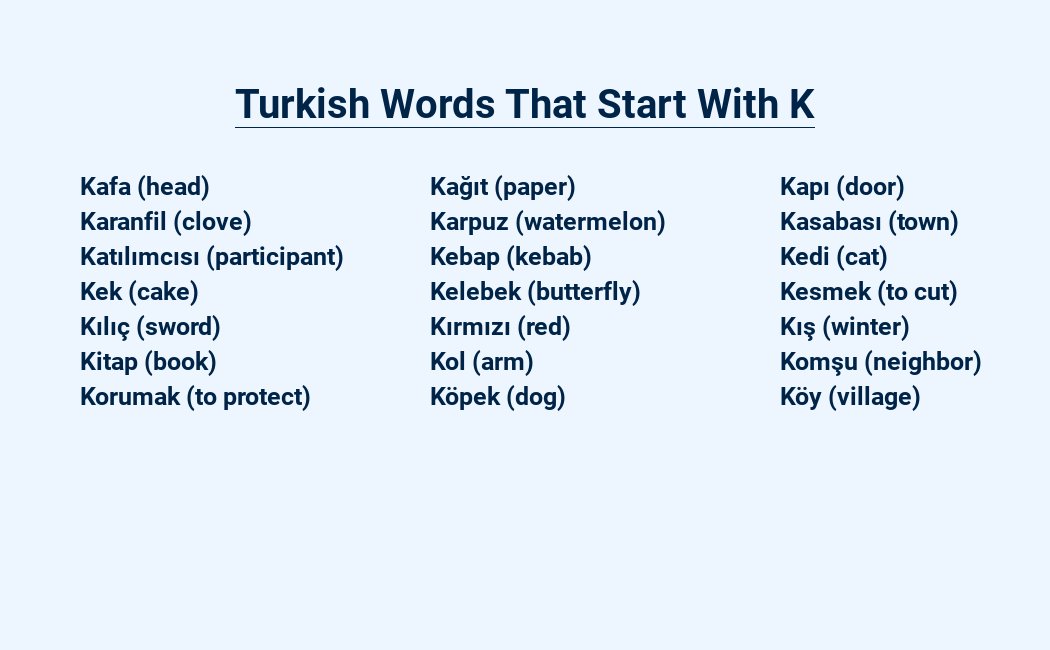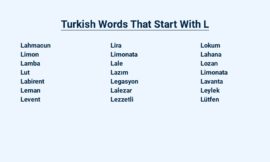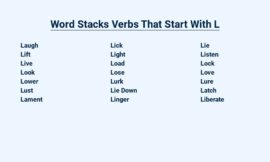From “kafa” (head) to “kuzgun” (raven), Turkish has a rich vocabulary of words starting with the letter “k.” Explore my collection of commonly used Turkish words beginning with “k” and immerse yourself in the nuances of this fascinating language.
Discover the diverse meanings and applications of these terms, enriching your understanding of Turkish vocabulary.
| Kelime | Meaning |
| Kafa | Head |
| Kalp | Heart |
| Kardeş | Brother or sister |
| Kaymak | Clotted cream |
| Kek | Cake |
| Kelime | Word |
| Kendi | Himself, herself, itself |
| Kent | City |
| Kesmek | To cut |
| Kim | Who |
Turkish Words that Start with K
Kafa (Head)
“Kafa” (Head) is a Turkish word used to refer to the head of a person or animal. It can also be used metaphorically to mean intelligence or understanding, or to refer to a particular idea or opinion.
Kalp (Heart)
Kalp (Heart): The heart, a vital organ responsible for pumping blood throughout the body, supplying oxygen and nutrients to cells while removing waste products.
Its symbolic representation of love and emotions holds cultural significance in many societies.
Karaciğer (Liver)
The liver is a vital organ involved in various essential functions, including metabolism, detoxification, bile production, and storage of nutrients.
It plays a crucial role in maintaining overall health and well-being.
Karn (Abdomen, Belly)
Karn, meaning “abdomen” or “belly” in Turkish, is a vital part of the human anatomy responsible for digestion, nutrient absorption, and elimination of waste products.
It is also home to various organs, including the stomach, intestines, liver, and pancreas.
Protecting and maintaining the health of the karn is essential for overall well-being.
Karpuz (Watermelon)
Karpuz (Watermelon): A refreshing and juicy summer fruit, beloved for its sweet and hydrating flesh. Karpuz is often enjoyed fresh, but it can also be used in desserts, salads, and drinks.
Kaşık (Spoon)
Kaşık, the Turkish word for spoon, is a versatile utensil used for scooping, stirring, and eating. Its origins can be traced back to ancient civilizations, where it was fashioned from various materials like wood, bone, and metal.
Today, spoons come in diverse designs and sizes, catering to different purposes and cuisines.
Kavun (Melon)
Kavun, also known as melon in English, is a refreshing and juicy fruit commonly enjoyed during the summer months.
Its sweet flavor and high water content make it a popular choice for both snacks and desserts.
Kaya (Rock)
Kaya (Rock) is a Turkish word that signifies a solid natural substance that forms the Earth’s crust. It can be used in various contexts, including geology, construction, and art.
Kaymak (Clotted Cream)
Kaymak, a delectable Turkish dairy product, is a thick, creamy layer that forms on top of boiled unsweetened milk.
It is often used as a spread on bread or pastries, or as an ingredient in various dishes.
Kaymak is prized for its rich, velvety texture and slightly tangy flavor.
Kaynak (Source)
Kaynak (Source) refers to the origin or reference point from which something is obtained or derived.
It can be a person, book, document, or any entity that provides information or material.
Kedi (Cat)
Kedi, the Turkish word for “cat,” holds a special place in Turkish culture. These furry companions are revered for their independence, grace, and ability to bring joy to homes.
From street cats that roam the vibrant neighborhoods to beloved house cats, kediler (plural for kedi) add a touch of magic to daily life in Turkey.
Kelime (Word)
A word, in linguistic terms, is the smallest unit of language that carries meaning and can stand alone as a meaningful utterance.
Words are the building blocks of language, and they can be combined to form phrases, sentences, and larger units of discourse.
Kepçe (Ladle)
Kepçe (Ladle): A useful kitchen utensil with a deep bowl and a long handle, primarily used for serving soups, stews, and other liquid foods.
Its design facilitates easy pouring and precise portion control.
Kestane (Chestnut)
Chestnuts, known as “Kestane” in Turkish, hold a special place in Turkish cuisine and culture.
These sweet and versatile nuts are enjoyed roasted, boiled, or ground into flour for use in traditional Turkish desserts like chestnut pudding and chestnut cake.
Their distinct flavor and nutritional value make them a beloved ingredient in Turkish households.
Kesin (Certain)
Kesin means ‘certain, definite, or sure’ in Turkish.
It is commonly used to express certainty or confidence about something.
For example, “Kesinlikle biliyorum ki bu doğru.” (I definitely know that this is true.)
Kilit (Lock)
Kilit (Lock): A device used to secure doors, gates, and other openings.
It typically consists of a metal mechanism that engages with a key or combination to prevent unauthorized access.
Kim (Who)
Kim, meaning “who” in Turkish, is a commonly used interrogative pronoun. It is employed in questions to inquire about the identity of a person, animal, or thing.
Kim is often paired with other words or phrases to form more specific questions.
Kira (Rent)
Kira (Rent): Kira, meaning “rent,” is a crucial aspect of housing in Turkish culture. It signifies the financial agreement between a landlord and a tenant for the use of a property.
The amount of rent is often negotiated and can vary depending on factors like location, size, and amenities.
Understanding the concept of kira is essential for navigating the Turkish housing market.
Kitap (Book)
Kitap (Book): A fundamental tool for acquiring knowledge, transporting readers to different worlds, and expanding their perspectives.
Books hold the power to educate, entertain, and inspire, leaving an indelible mark on the minds of those who delve into their pages.
Kıyafet (Clothing)
“Kıyafet” refers to the clothes worn by an individual or group. It encompasses a wide range of items, from everyday attire to formal wear and traditional garments.
“Kıyafet” can also denote a specific dress code or uniform worn for particular purposes or occasions.
Kız (Girl)
“Kız” is a common Turkish word meaning “girl” or “daughter.” It is often used in everyday conversation and can also be found in literature, poetry, and song lyrics.
The word has a warm and affectionate connotation and is often used to express love and care for a young female.
Kolay (Easy)
“Kolay” is a common Turkish word that means “easy” or “effortless.” It is often used to describe tasks or situations that are simple to complete or understand. “Kolay” can also be used metaphorically to refer to things that are pleasant or enjoyable.
Koltuk (Chair)
Koltuk (Chair): A comfortable piece of furniture designed for sitting, often with a cushioned seat and a backrest, used in homes, offices, and public spaces for relaxation, work, or dining.
Komşu (Neighbor)
A neighbor is a person living near another person or family in an adjacent house or building. Neighbors can be friends, acquaintances, or strangers, and they can play an important role in a person’s life.
Konuşma (Speech)
Konuşma (Speech) is the act of expressing thoughts and ideas through spoken words. It involves the use of language to communicate with others, conveying information, emotions, and opinions.
Speeches can be formal or informal, ranging from public addresses to casual conversations.
Köpek (Dog)
Dogs, known as “köpek” in Turkish, have held a significant place in Turkish culture and history, serving as loyal companions, protectors, and workers. Their intelligence, loyalty, and devotion have made them beloved members of many Turkish families.
From street dogs to prized purebreds, dogs add joy and companionship to Turkish lives.
Kötü (Bad)
“Kötü” carries the meaning of “bad” in Turkish. It is commonly utilized to express negative qualities, undesirable situations, or actions that cause harm or displeasure.
“Kötü” finds its place in various contexts, including moral evaluations, assessments of quality, and descriptions of unfortunate events.
Koyun (Sheep)
Koyun (Sheep): A docile and valuable herbivore commonly found in rural areas. They are prized for their wool, which is used to make a variety of products, including clothing, blankets, and carpets.
Kulak (Ear)
Kulak (Ear) is an essential sensory organ used for hearing and maintaining balance. It consists of three main parts: the outer, middle, and inner ear, each playing a unique role in the process of capturing, transmitting, and interpreting sound vibrations.
Kulüp (Club)
Kulüp (Club) refers to a social group or organization formed by individuals who share common interests, activities, or goals. It can involve various types of clubs, such as sports clubs, social clubs, or cultural clubs.
These groups provide opportunities for people to connect, engage in shared activities, and foster a sense of community.
Kumsal (Beach)
Kumsal (Beach): A vast expanse of sand or pebbles along the coast where the land meets the sea or a lake, inviting relaxation, sunbathing, and the gentle sound of waves.
Kurbağa (Frog)
The Turkish word “Kurbağa” refers to a frog, a common amphibian found in various aquatic and semi-aquatic environments.
Frogs are renowned for their jumping ability, smooth skin, and distinctive calls.
They play a vital role in ecosystems, serving as both predators and prey.
Kurt (Wolf)
Kurt, meaning “wolf” in Turkish, is a powerful and majestic creature that holds a significant place in Turkish mythology and culture. Often depicted as a symbol of strength, courage, and loyalty, the wolf has been revered throughout history for its protective instincts and its ability to survive in harsh conditions.
Kuş (Bird)
Kuş (Bird) is a common noun in Turkish that refers to a warm-blooded vertebrate animal having feathers, wings, and a beak.
Birds are known for their ability to fly, and there are numerous species of birds with diverse sizes, colors, and habitats worldwide.
Kutu (Box)
Kutu (Box): A common household item used for storing and organizing various objects.
Made from a variety of materials including wood, plastic, and metal, boxes come in different shapes and sizes to suit diverse storage needs.
Kuzey (North)
Kuzey (North) is a direction commonly used in navigation, geography, and astronomy.
It is one of the four cardinal directions, along with east, south, and west.
Kuzey is often used to indicate the direction toward the North Pole.
Final Verdict
Exploring the world of Turkish vocabulary that begins with the letter “K” unveils a treasure trove of words encompassing diverse aspects of life.
From essential body parts like “kafa” (head) and “kalp” (heart) to delectable foods such as “karpuz” (watermelon) and “kaymak” (clotted cream), the letter “K” paints a vivid picture of Turkish culture and language.
Discover the beauty and intricacies of Turkish vocabulary through these rich and meaningful words that start with “K.”




